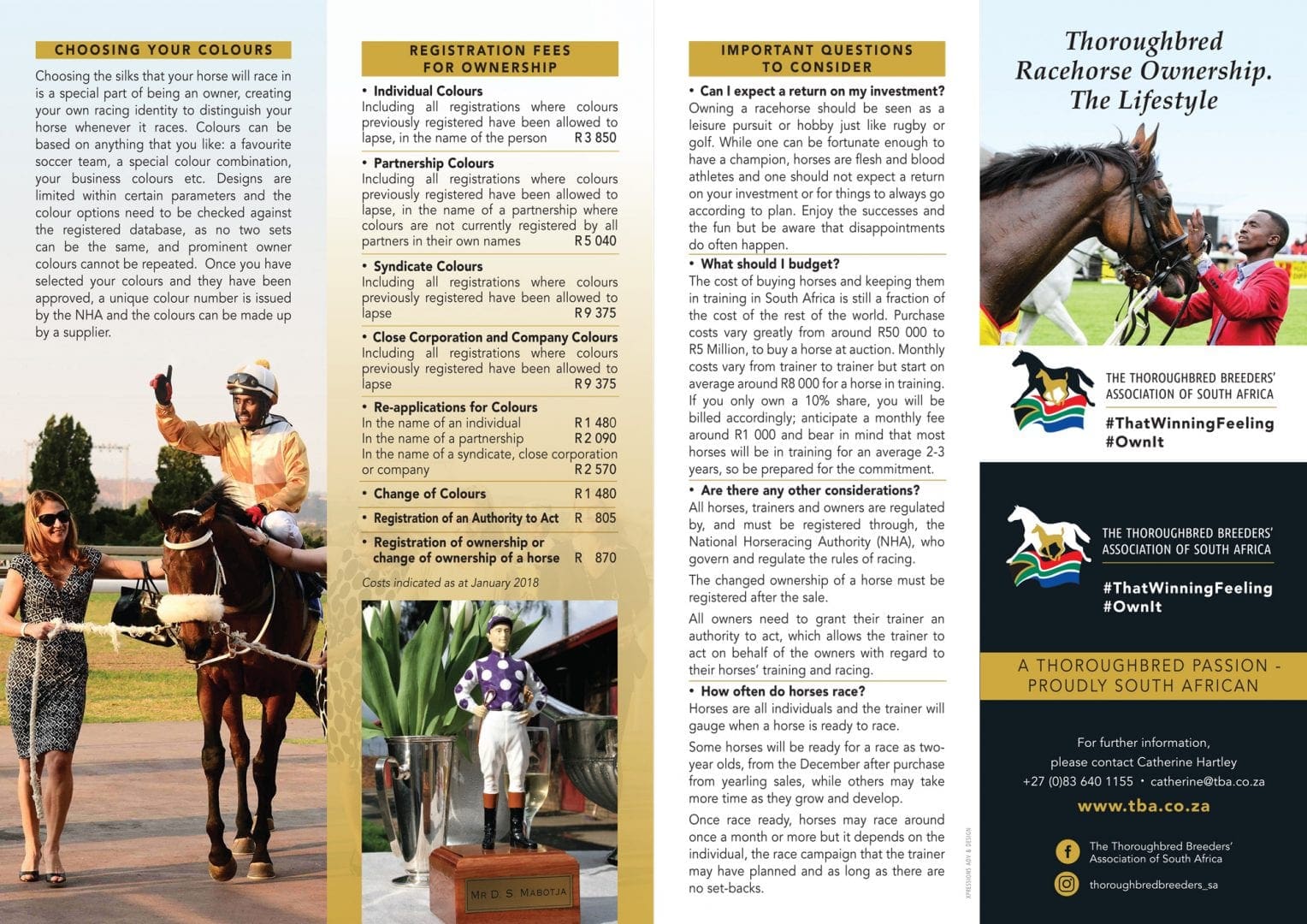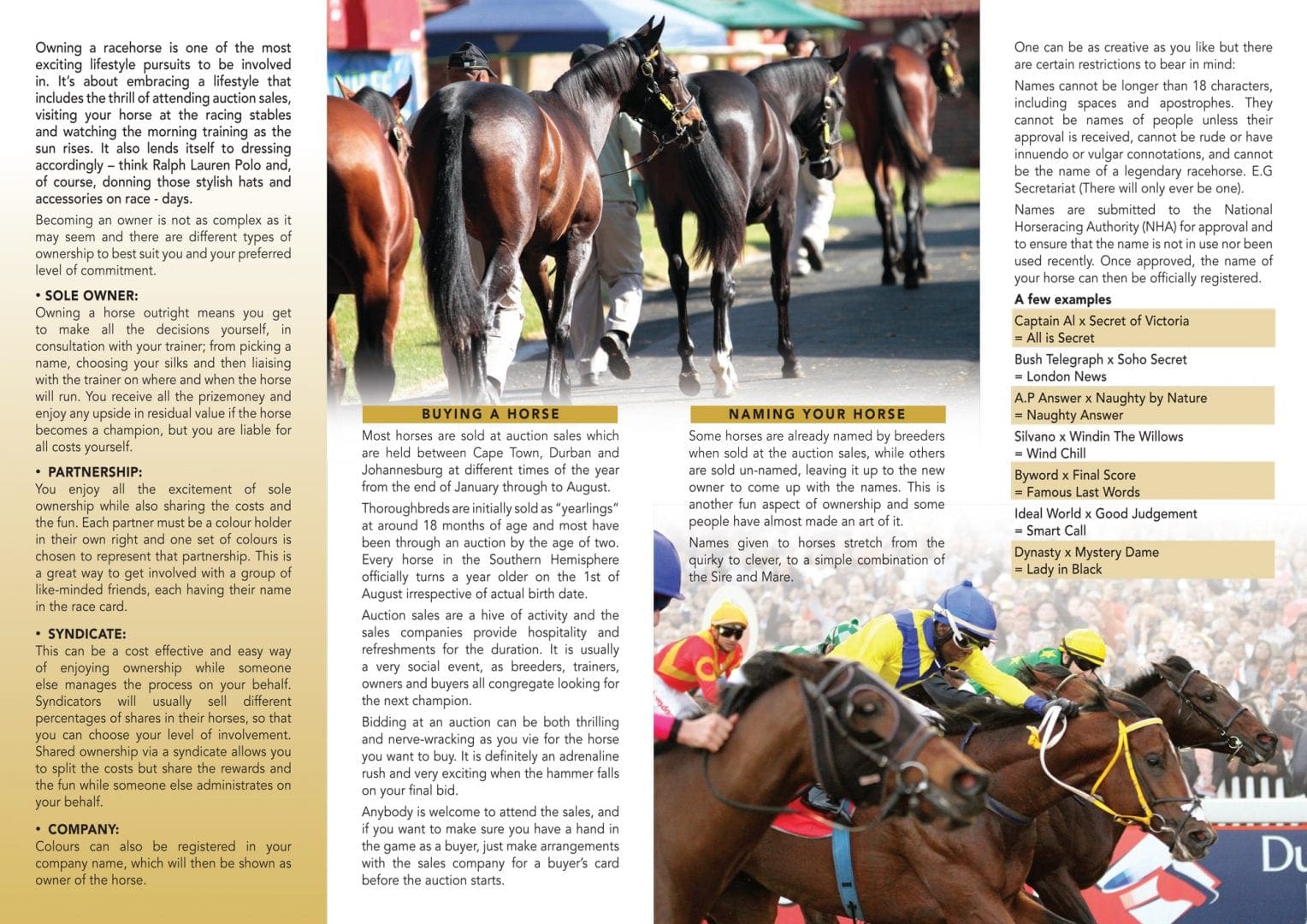OWNING A RACEHORSE
Whether you want to own 100 percent of a horse to race in your own colours, or only a small share, there are various options to suit your lifestyle. Whichever one you choose, the thrill is the same, especially when experienced from the winners circle.
SOLE OWNER
Owning a horse outright means you get to make all the decisions yourself and in consultation with your trainer; from picking a name, choosing your silks and then liaising with the trainer on where and when the horse will run. You receive all the prizemoney and enjoy any upside in residual value if the horse becomes a champion, but you will also be liable for all costs yourself.
PARTNERSHIP
Enjoy all the excitement of sole ownership while also sharing the costs. Each partner must be a colour holder in their own right and one set of colours is chosen to represent that partnership. This is a great way to get involved, with a group of like-minded friends, each having their names in the race card.
SYNDICATE
This can be a cost effective way and easy of enjoying ownership while someone else manages the process on your behalf. Syndicators will usually sell different percentages of shares in their horses, so that you can choose your level of involvement. Shared ownership allows you to split the costs but share the rewards and the fun. Some shares will include all costs involved, so you know exactly how much your ongoing liabilities will be.
COMPANY
You can also register colours in your company name. The race card will show the company name as the owner of the horse.
LEASING: Sometimes horses are available to lease from the breeders, on an individually agreed basis, for the duration of the horse’s race career.
COSTS
THE NATIONAL HORSERACING AUTHORITY OF SOUTHERN AFRICA
Registration fees and charges for ownership
Individual
Colours
Including all registrations where colours previously registered have been allowed to lapse) in the name of the person - R4285
Partnership
Colours
Including all registrations where colours previously registered have been allowed to lapse, in the name of a partnership where colours are not currently registered by all partners in their own names - R5605
Partnership Colours
Including all registrations where colours previously registered have been allowed to lapse, where all the partners have colours currently registered in their names and do not intend to race in the colours of one of such partners - R3505
Syndicate
Syndicate Colours
Including all registrations where colours previously registered have been allowed to lapse - R10420
Change of Name of a Syndicate
R1550
Close Corporations
Close Corporation and Company Colours
Including all registrations where colours previously registered have been allowed to lapse - R10420
Change of Names of the Directors and/or Secretary
Of a company or members of a close corporation - R855
Change of the Nominee
Of a close corporation or a company - R855
Re-applications for Colours
Subject to the penalties referred to in 2 above
In the name of an individual - R1645
In the name of a partnership - R2320
In the name of a syndicate, close corporation or company - R2860
Change of Colours
Change of Colours - R1645
Authority to Act
Registration of an Authority to Act
For an indefinite period - R895
Change of Ownership or Lease
Registration of ownership or change of ownership of a horse
Except as provided for in Rules 41.2.1 or 41.2.3 - R970
Registration of a partnership in a horse
Except as provided for in Rule 41.2.2 - R930
Registration of a Lease of a Horse
- R970
TRAINING
Selecting your trainer is one of the most important decisions you will make as an owner, as it demands understanding and transparent communication, as well as trust. Obviously your trainer will manage the day to day training of the horse and will keep you up to date on the progress and race nominations/entries of each individual. They should also be there for advice on new purchases at auction sales and helping to source the right horse for you to get involved in. Training costs vary from region to region and between trainers but start on average around R8000 per month and upwards per horse.


